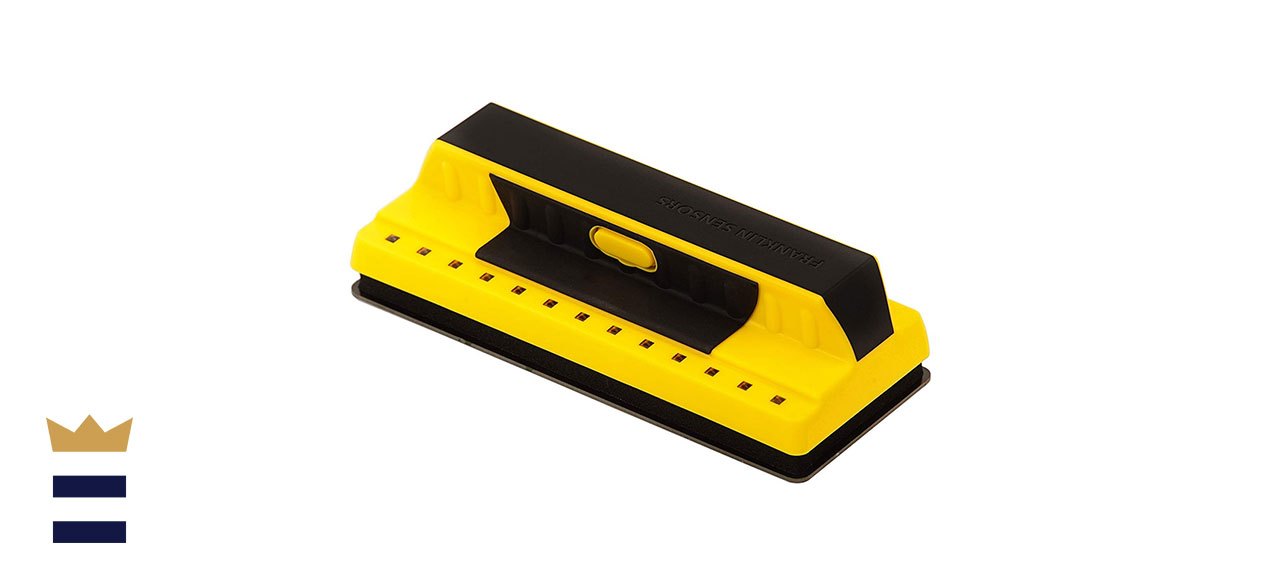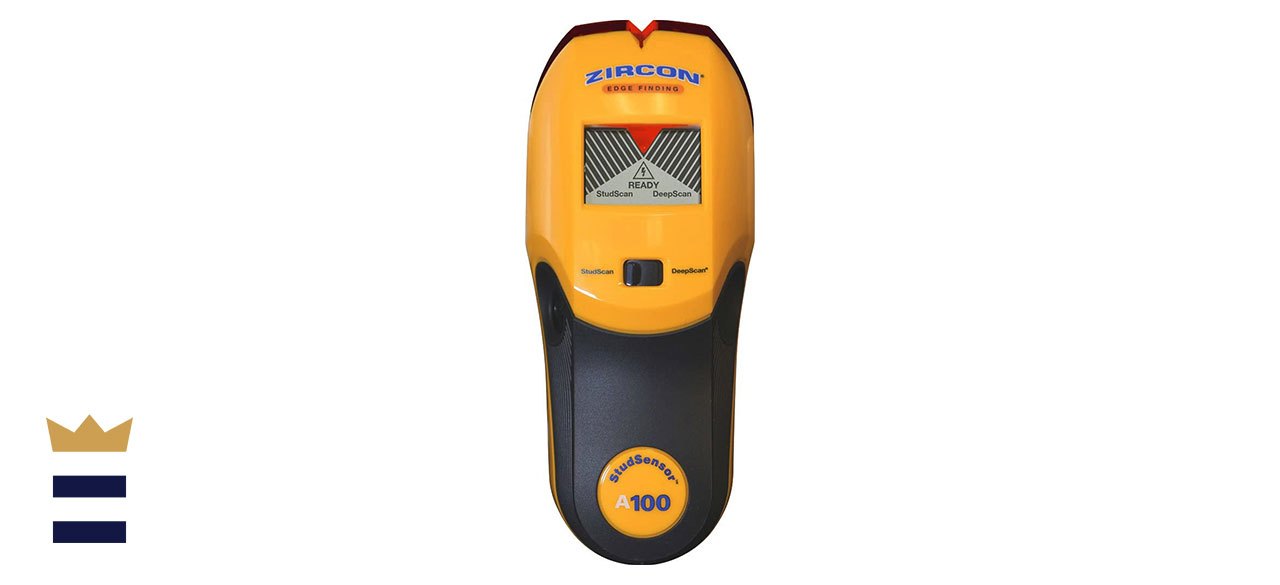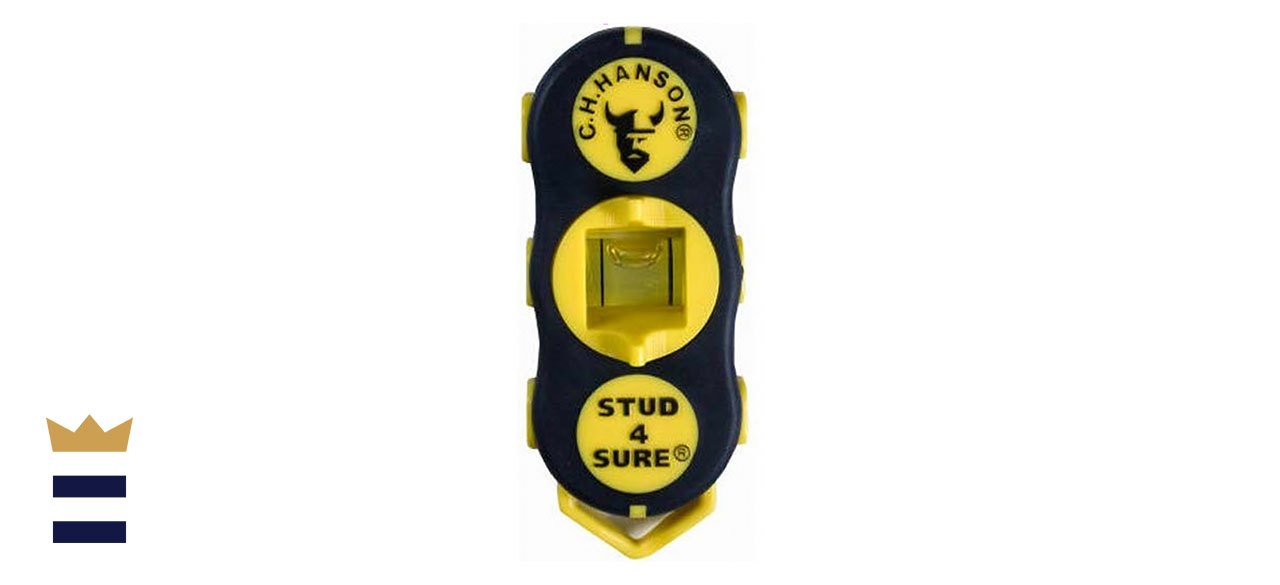Which stud finders are best?
It doesn’t matter whether you’re hanging a small mirror or a huge flat-screen TV, the best and safest way to do that is by securing the item to wall studs. The trouble homeowners often run into, however, is driving in a nail or screw and missing the stud completely. You’ll likely eventually achieve success, but possibly after making several holes in your once-pristine wall.
A stud finder helps you get it right on the first try. The best ones are accurate, can work on a variety of walls, and detect more than studs. The ProSensor Precision Stud Finder, for instance, features an impressive 13 sensors and is our top choice. To learn more about the ProSensor and other stud finders, keep reading.
What to know before you buy a stud finder
Types of stud finders
- Magnetic stud finders are the most affordable of the two styles, and they use a strong magnet to find nails that are embedded in the studs. The homeowner slides the stud finder around the wall until he feels a tug, which alerts him that something metal is at that location. The downside is that the nails are not the actual studs, and they likely are not perfectly centered in the stud, so you still might have a miss or two. Also, the magnet will detect anything metal such as anchors, fasteners, pipes, conduit and wiring, not just nails, so you must be careful.
- Electronic stud finders measure the density of your wall. Most need to be calibrated where you are certain there is no stud, then you slide the unit along, waiting for it to alert you that a stud has been found. Some models find just an edge, others use multiple sensors to indicate the center of the stud. All electronic stud finders require a battery to operate, and they can have inconsistent readings depending on the thickness and type of wall you are scanning.
What to look for in a quality stud finder
There are a number of other important features to keep in mind when choosing the best stud finder for your needs. A unit with AC wiring alert notifies you of the presence of live wires, which can be a literal life saver. Some sensors can detect the difference between wood and metal, which will come in handy if you have water pipes running through your wall. A stud finder’s interface is how the unit communicates what it finds. Some models beep, some flash a light, others have an LCD screen with more detailed information. Choose the type of interface that is the most intuitive to you.
How much you can expect to spend on a stud finder
A decent magnetic stud finder can be purchased for under $10. If you prefer an electronic model, however, you can get a basic edge-finding unit for $25-$35. At $50, you’ll find stud finders that can detect the center of a stud and likely have two operating modes and live AC detection. For a pro-quality tool, with advanced sensing features, you can spend up to $75.
Stud finder FAQ
Can I blindly trust a stud finder?
A. Unfortunately, no. You still must use caution and common sense. Many models can only inform you that something is behind the wall, they don’t identify what that something is. If it is a water pipe and not a stud, driving a nail could produce disastrous results.
What is the best strategy for using a stud finder?
A. The best way to use a stud finder is to perform multiple passes over a wider range of wall. You want to see consistent results and understand shapes and distances. If something doesn’t seem right, the unit could be “seeing” something other than a stud.
What is the best stud finder to buy?
Top stud finder
ProSensor Precision Stud Finder
Our take: A stud finder that uses multiple sensors so you can quickly identify and envision precisely where each stud is located.
What we like: There is no need to slide this stud finder around as it can sense 13 locations at once. Also, there is no calibration session required, and the results are delivered via 13 LED lights to give you a more complete picture.
What we dislike: This stud finder can encounter a little difficulty when used on thicker walls.
Where to buy: Sold by Amazon
Top stud finder for the money
Zircon Pro StudSensor A100 Wall Scanner
Our take: A handy tool that senses the edges of both wood and metal studs while alerting you to any live AC wires that may be within the wall.
What we like: This stud finder features two modes: StudScan for up to ¾” deep and DeepScan for when you are getting irregular readings in the StudScan mode. The easy-to-read LCD screen clearly shows when an edge has been detected.
What we dislike: It can take a number of passes to ensure the readings are accurate.
Where to buy: Sold by Amazon
Worth checking out
CH Hanson Magnetic Stud Finder
Our take: A convenient tool that requires no power and quickly finds nails, not the studs.
What we like: This little device will locate nails in walls up to 1” deep. It has a two-way level and features a soft grip for comfort and ease of handling.
What we dislike: The tool is accurate, but if the original installer didn’t put the nails in the center of the studs, it might still be hard to locate the stud’s exact position.
Where to buy: Sold by Amazon
Sign up here to receive the BestReviews weekly newsletter for useful advice on new products and noteworthy deals.
Allen Foster writes for BestReviews. BestReviews has helped millions of consumers simplify their purchasing decisions, saving them time and money.
Copyright 2021 BestReviews, a Nexstar company. All rights reserved.



